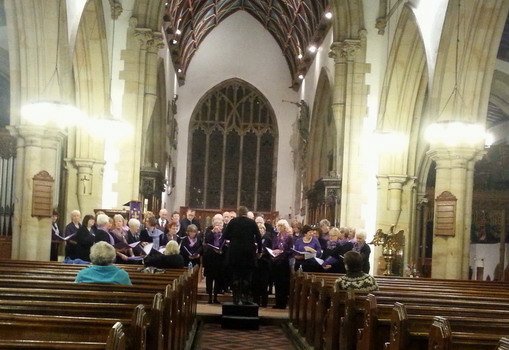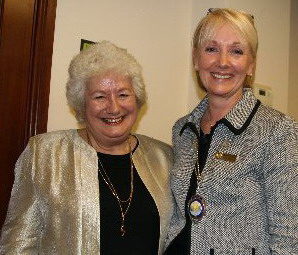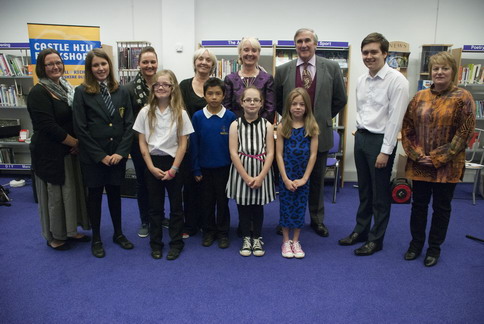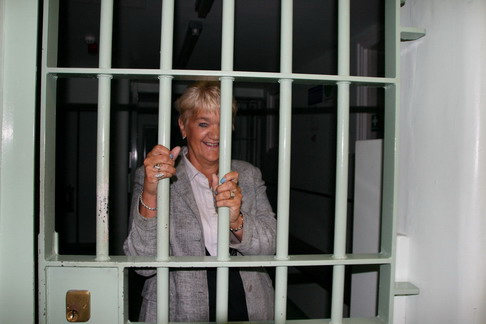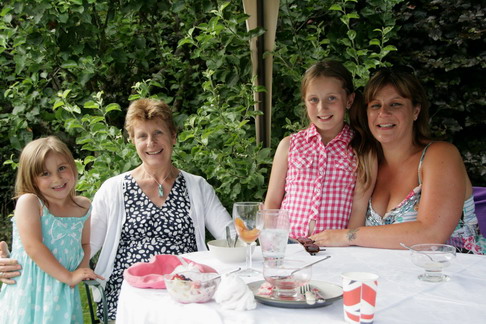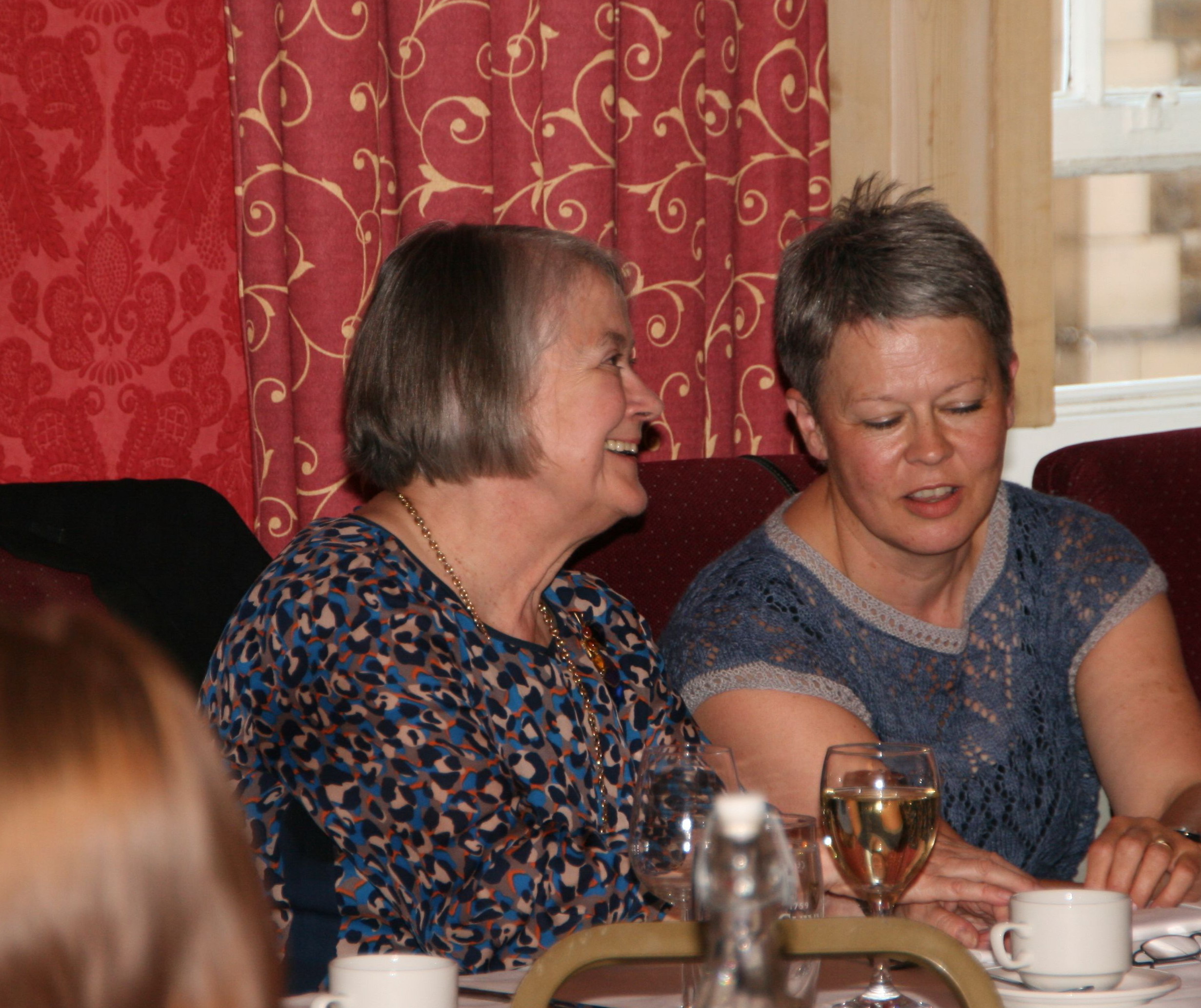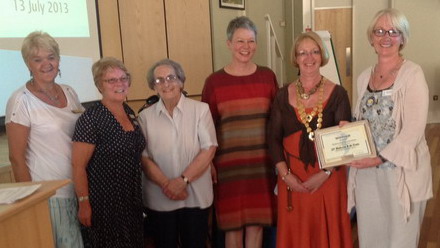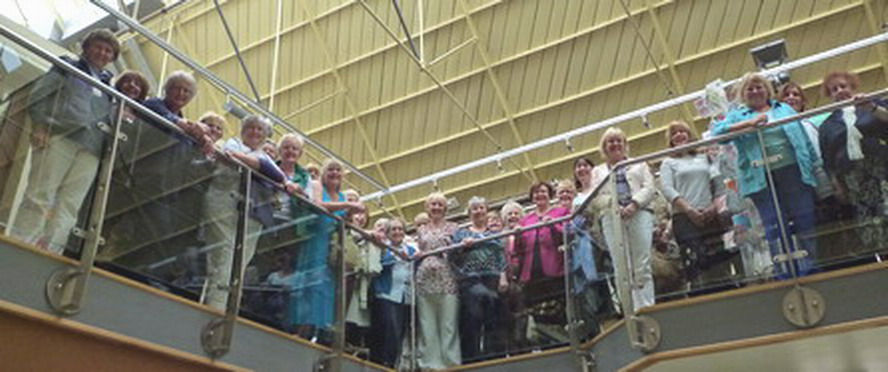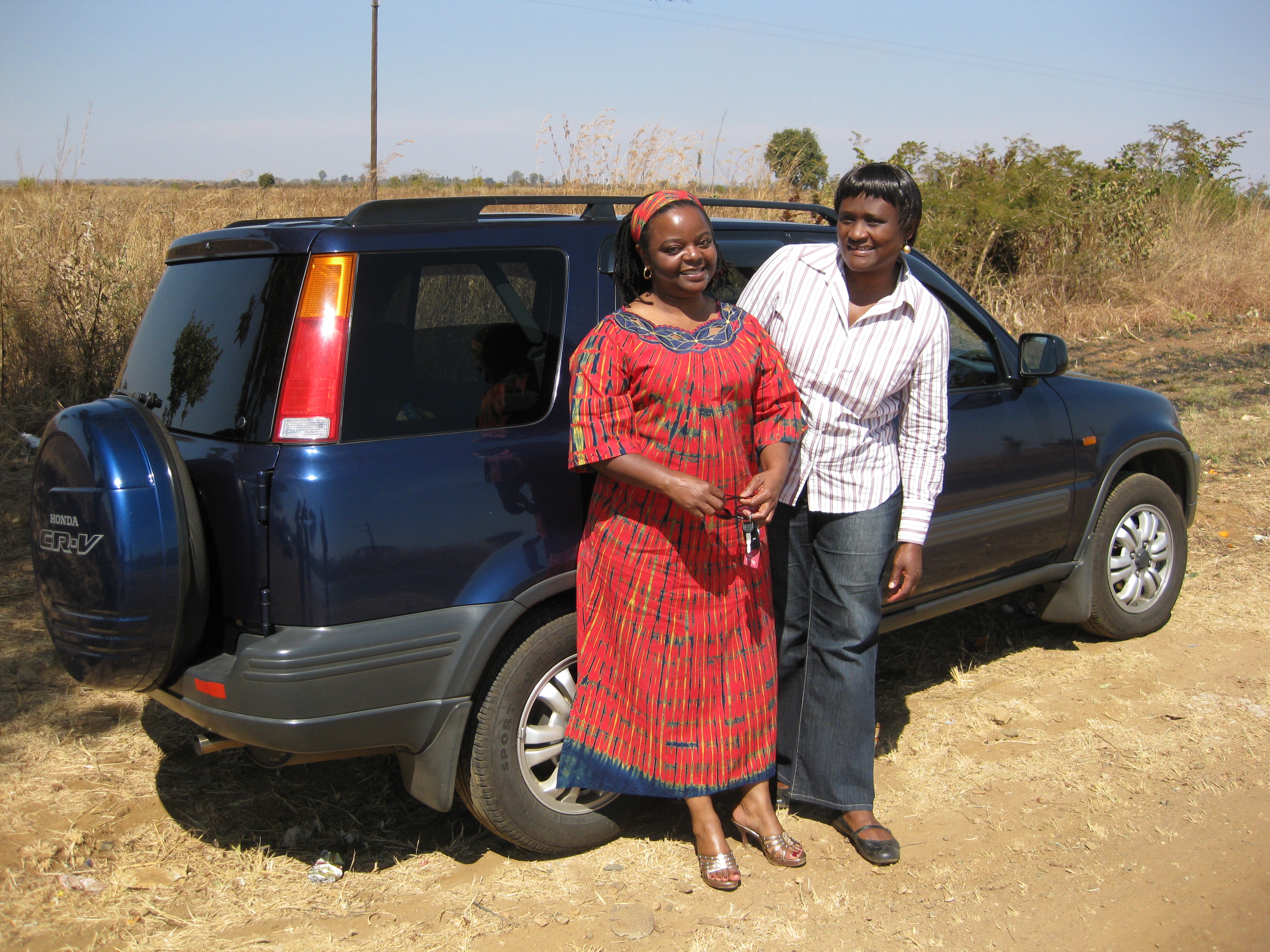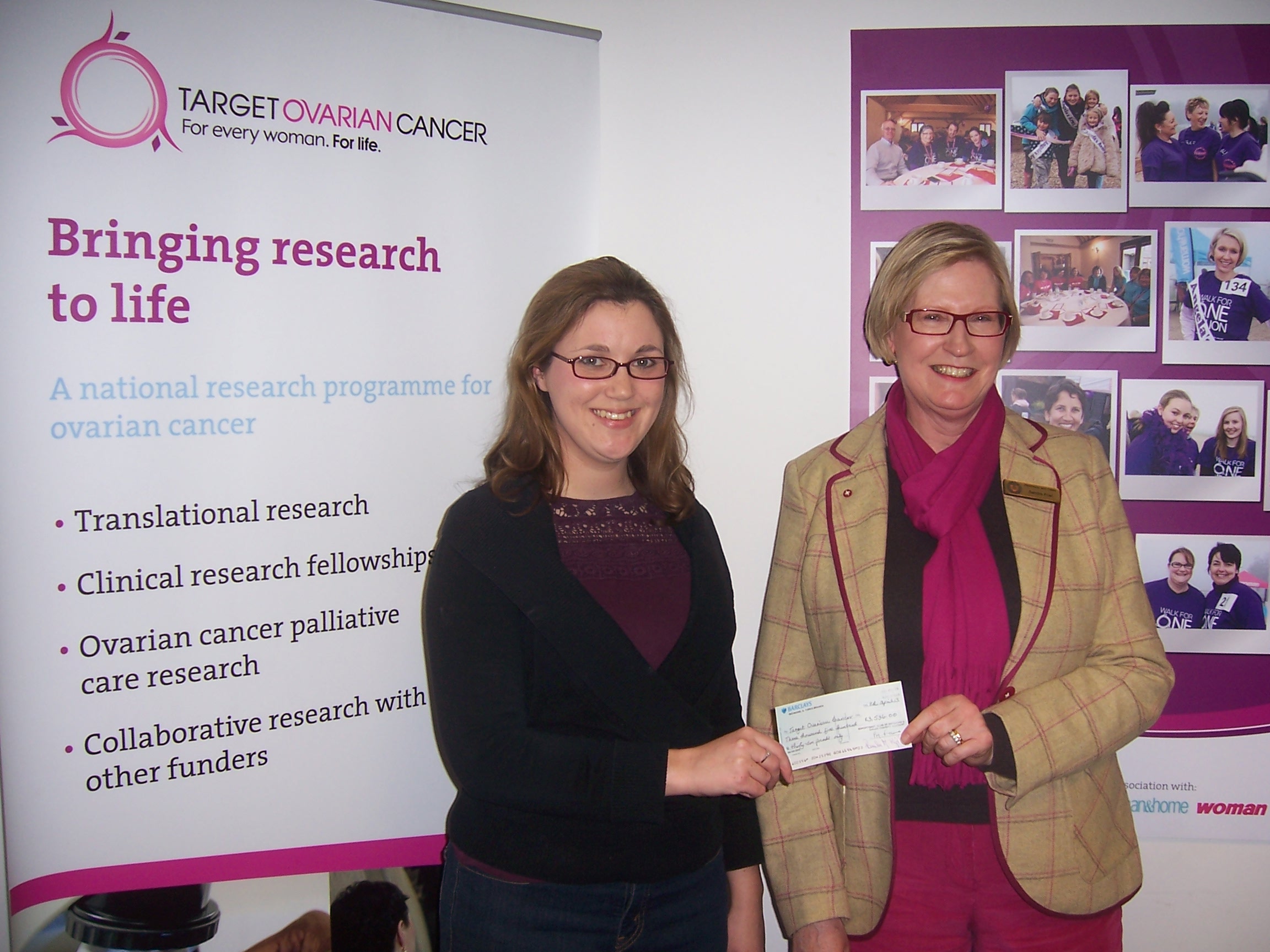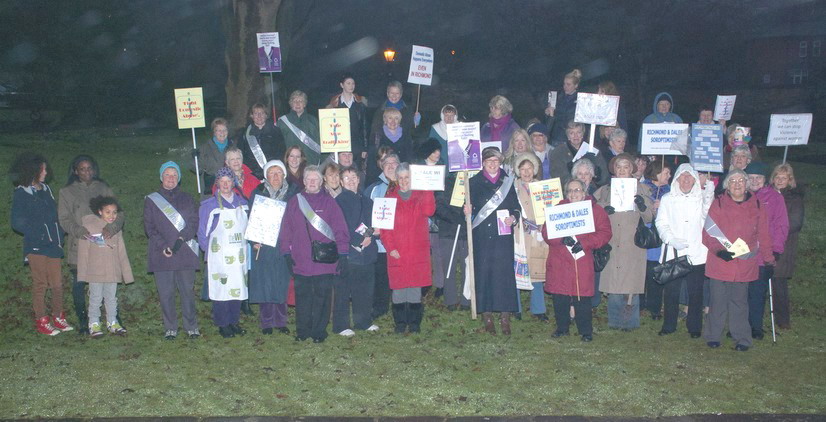Richmond & Dales members were taken completely by surprise when it was announced during the regional council meeting at Askham Bryan College that the Club had been awarded the Mary Hillary Award for its Sharing our Skills project
The project, now in its second year, works with three, self-selected senior students from Richmond School who, with full support from the school and in partnership with Club members, gain experience in developing their skills in leadership, group work, presentations and volunteering. The students attend Club meetings and small group discussions on specific, relevant topics. The Club is appreciative of the continuing support of the school staff.
The Mary Hillary Award is given to the project that best reflects Soroptimist International’s vision and mission of helping women and children through advocacy, action and awareness. It was presented by the Yorkshire regional president, Julie Thompson,
Saturday 22 June
THE BIG PROJECT – (Birthing in the Gambia)
A ‘RAISING AWARENESS’ MORNING & LUNCH AT THE STATION, RICHMOND
The BIG Project is a SIGBI project in partnership with MCIA [Maternal & Childhealth Advocacy International]. The 20th July has been designated as the SIGBI Day of Action. Clubs worldwide are holding special events on or around that date to raise awareness and funds for the project.
At our Morning & Lunch Event at The Station, Richmond, it was a great pleasure to welcome members from Darlington, Durham, Harrogate, Ilkley, Leeds and Middlesbrough Clubs. The 60 Soroptimists and one or two husbands more than half-filled the cinema to hear an excellent presentation from Rita Allan, a Northern Ireland Soroptimist, who is a health visitor and midwife and also the liaison officer for the project. She had flown in to Newcastle that morning from Belfast having left her home at an unearthly hour!
Rita explained that the Gambia is bisected by a large river which, combined with an undeveloped road network, adds significantly to the difficulties experienced by pregnant women in need of urgent care. She gave a graphic description of the difficulties faced by pregnant women in the Gambia in circumstances where trained staff and facilities for providing emergency care at and after childbirth are virtually non-existent outside the country’s few hospitals. Because women tend to be married while still very young their pelves are undeveloped with consequent high risk to themselves and their babies during and after childbirth. The relatively few local birth attendants have minimal training but with 66,000 births each year, maternal and infant mortality rates are shockingly high although there has been a small reduction in both over the last five years. Birthing units are being developed in a few parts of the country’s interior in renovated buildings rather than building expensive new units.


